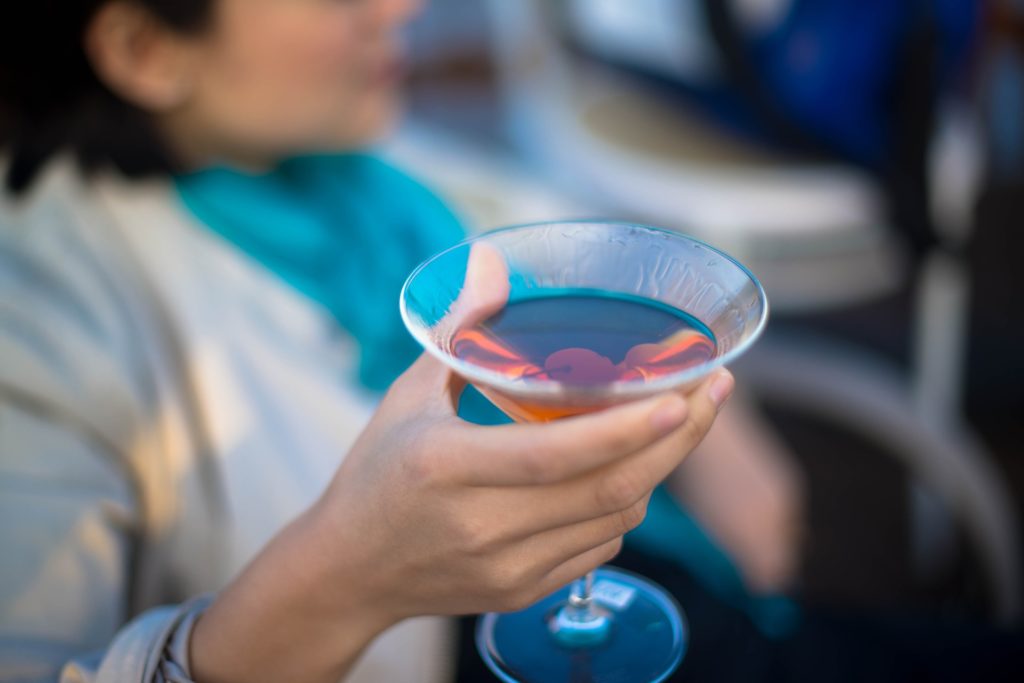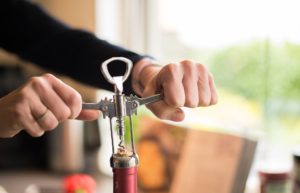
Contributor: Staff of Timberline Knolls Residential Treatment Center
A recent study released by the University of California San Francisco (UCSF) revealed that alcohol abuse and depression were among the top causes of avoidable emergency room visits on a national level, highlighting the seriousness of these mental health issues. Using alcohol to cope with depression is not the safest solution.
Preventable issues could be defined as visits that involved a patient being discharged home without needing any diagnostic tests, procedures, medications or blood tests. Researchers found that nearly 17 percent of all visits for mood disorders, such as depression, could have been avoidable, as were over 10 percent of all alcohol-related visits to the emergency room [1].
Some of the factors that could decrease avoidable visits to the emergency department may include regular and accessible care to mental health facilities, which may be difficult for many who lack adequate mental health coverage. These findings are revealing of the prevalence of both alcohol-related issues and mood disorders, like depression, with which countless individuals struggle.
Many people who may be dealing with problematic alcohol use or depression may be more likely to seek out help in emergency departments when symptoms are severe rather than connecting with mental health treatment.
Co-Occurring Alcohol Abuse and Depression
It is common for alcohol use disorders to co-occur with other mental health conditions, such as depressive disorders. Individuals with mental health conditions are at increased risk of also experiencing an alcohol or substance use disorder.  However, co-occurring issues can be difficult to diagnose and treat due to the complexity of symptoms from the overlapping conditions [2]. In many cases, one disorder may be more prominent than the other, which can overshadow the underlying disease that may also be present.
However, co-occurring issues can be difficult to diagnose and treat due to the complexity of symptoms from the overlapping conditions [2]. In many cases, one disorder may be more prominent than the other, which can overshadow the underlying disease that may also be present.
When it comes to depression, many individuals may inadvertently find ways to cope with the many symptoms they are experiencing as a result of this mental illness. Because people with mental illness have increased susceptibility to substance abuse, alcohol use may become a means of coping with depressive behaviors.
Research has found that individuals who struggle with depression are approximately twice as likely also to have a substance use disorder compared with people without a mood disorder [3]. A person experiencing symptoms related to depression may turn to alcohol or engage in alcohol use behaviors as a means of escaping or coping with the overwhelming feelings being experienced.
Coping With Symptoms of Depression
The common symptoms of depression can be overwhelming to deal with, especially without support and resources for treatment. While it is not unusual to experience period feelings of loneliness or sadness, clinical depression can result in much more severe symptoms that can lead to physical, emotional, mental, and psychological suffering.
Many individuals who are struggling with depression may not be aware of what they are experiencing, making it much harder to reach out for help and support.
Some of the symptoms associated with clinical depression may include the following:
- Chronic feelings of worthlessness, guilt, and/or helplessness
- Sleep changes, including insomnia and/or excessive sleeping
- Fatigue and decreased energy
- Difficulty concentrating and decision-making
- Loss of interest in hobbies and activities that were once pleasurable
- Appetite and weight changes
- Unexplainable physical pain, including headaches, digestive discomfort, aches, and pains
- Restlessness and irritability
- Suicide and/or self-harm ideations or attempts
A person experiencing these symptoms of depression may find few things in their life that are effective at distracting them from their own pain and suffering. Without professional help and intervention, substances, such as alcohol, can quickly become a tangible means of coping with something as painful as depression.
An individual struggling with depression may begin drinking as a way to numb their symptoms or simply as a temporary means of feeling better. However, a more severe alcohol use disorder can develop when engaged in drinking for these purposes, and the symptoms of depression can be exacerbated by alcohol consumption.
Alcohol Use Disorders
 Alcohol use that becomes difficult to control or problematic can escalate into an alcohol use disorder. If you or a loved one is struggling with depression and have turned to alcohol as a means of coping with this mental health condition, it is important to have an honest look at patterns involving drinking.
Alcohol use that becomes difficult to control or problematic can escalate into an alcohol use disorder. If you or a loved one is struggling with depression and have turned to alcohol as a means of coping with this mental health condition, it is important to have an honest look at patterns involving drinking.
When alcohol is taken in larger amounts or over a longer period of time than was intended or is continually used despite negative consequences, it may be likely that a more severe alcohol problem has developed alongside the depression. Because of the complex symptoms involved with co-occurring depression and alcohol use disorders, it is crucial to seek out professional help and treatment.
Connect with a treatment that offers specialized care for co-occurring disorders so that you are able to treat both conditions simultaneously and receive comprehensive care for healing and recovery. Healing from both depression and alcohol use disorders is possible, and you can begin your journey today by reaching out for help.
References:
[1]: Renee Y. Hsia, Matthew Niedzwiecki; Avoidable emergency department visits: a starting point, International Journal for Quality in Health Care, https://doi.org/10.1093/intqhc/mzx081
[2]: Substance Abuse and Mental Health Services Administration, “Co-Occurring Disorders”, https://www.samhsa.gov/disorders/co-occurring, Accessed 30 August 2017
[3]: Quello, S. B., Brady, K. T., & Sonne, S. C. (2005). Mood Disorders and Substance Use Disorder: A Complex Comorbidity. Science & Practice Perspectives, 3(1), 13–21.
Thank you to Timberline Knolls for providing this article.

(Advertisement)
Timberline Knolls is a leading residential treatment center for women and adolescent girls, ages 12 and older, with eating disorders, substance abuse, trauma, mood and co-occurring disorders. Located in suburban Chicago, residents receive excellent clinical care from a highly trained professional staff on a picturesque 43-acre wooded campus. An adult partial hospitalization program (PHP) is also available in nearby Orland Park, Ill., for women to step down or direct admit. For more information on Timberline Knolls Residential Treatment Center, call 630-755-5173. We are also on Facebook – Timberline Knolls, LinkedIn – Timberline Knolls and Twitter – @TimberlineToday.
The opinions and views of our guest contributors are shared to provide a broad perspective of addictions. These are not necessarily the views of Addiction Hope, but an effort to offer a discussion of various issues by different concerned individuals.
We at Addiction Hope understand that addictions result from multiple physical, emotional, environmental, and genetic factors. If you or a loved one are suffering from an addiction, please know that there is hope for you, and seek immediate professional help.
Published on October 2, 2017
Reviewed and Updated by Jacquelyn Ekern, MS, LPC on January 12, 2021
Published on AddictionHope.com
